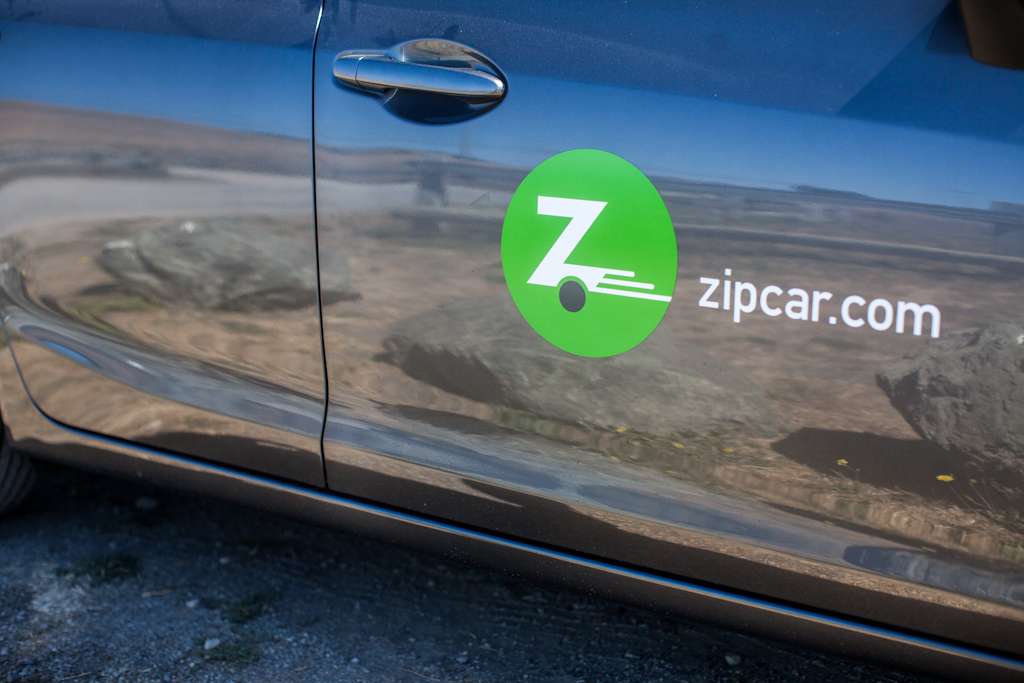Don’t get mad.
Change the rules.
The biggest frustration of using ZipCar is that the vehicle that you’ve booked has not been returned on time. Standing in front of an empty parking bay imaging the previous driver cruising down the 101 is frustrating enough – but is amplified when you are there with family or friends or colleagues or lovers, with hands full of groceries or luggage or child-seats or children and other things that make life interesting and just a little more complex.
A few weeks ago I had my very own ZipCar-not-there moment, one that killed plans for a precious afternoon with family. It hurt. And it got me thinking about how it could have hurt less.
There’s a bunch of small but pertinent service design elements that the ZipCar team will have thought about: the system/modal conflict between emailing someone that their reservation is ready so go pick it up and in the same time-frame trying to call a customer to tell them it’s not there; not adhering to the customer preference for how they want to receive notifications in these kind of situations; the transparency of the actual location of the vehicle when it falls within your allotted rental time; the on-time return rate of the person who is currently using the vehicle; and some form of messaging from the service if not the other renter as to why the vehicle is late. The ZipCar team will have visibility on the priority, legality, trade-offs for each of these and more, and an assumption about whether or not I’m the kind of core customer that they want to attract. (I’m probably not*).
Current ZipCar rules dictate that returning a car late results in a penalty fee of $50 per late hour. And while this may be ZipCar’s cash cow, it’s BlockBuster late fee, it’s also a missed opportunity to re-imagine the relationship between people and objects and the marketplace (or other context) that brings them together. It’s a missed opportunity to turn a negative into a positive, and to redefine something that most people take for granted, but which is ripe for change.
Instead of the fine going ZipCar, it should go to the person that was inconvenienced.
One more time.
Instead of the fine going ZipCar, it should go to the person that was inconvenienced.
Think about the social and market dynamics around that statement: what it enables; the changes in relationship between inconveniencer and inconveniencee; how the market would distort and gurn before findings its equilibrium. And then imagine this change in every context where a fine is paid:
For every market, the authority that sets the rules;
The consumers or other actors (or actresses) that play in that market. Their degree of choice in whether to play (robust competition, monopolies, distress goods, ..)
The mechanisms through which actors are identified.
The mechanism through which actors make payments. The dynamism of those payments;
The service within which the marketplace exists;
The rules by which a market functions;
For every service, acceptable boundaries of use. How those boundaries are defined, communicated;
For every situation the behaviours that are considered socially acceptable, and those that are considered anti-social;
The formal and informal rules governing anti-social behaviour;
The mechanisms in place to punish those who break the rules;
The range of punishments;
(Those excempt from punishment?)
(The reasons why they are excempt?) ((exceptions are often more interesting than the rules)
The mechanisms in place to compensate those affected by the rule breaking;
The awareness and literacy and clarity of the rules;
And how our mind-set of what constitutes a “fine” will forever shift as the strands that connect people become more transparent, persistent.
And a final thought: notions around “lateness” and “timeliness” vary by culture, geography, context and personality – how the market dynamics shift depending on each.
* Probably the latter, despite many years happily car-sharing in London at this stage in my life I’m probably too time-sensitive for this to work.
Related links: the anti-social etiquette around parking in Moscow; the social rules around parking in Seoul; how Tokyo parking attendants are at the forefront of urban data collection; and a short essay how parking might play out in the future urban.
